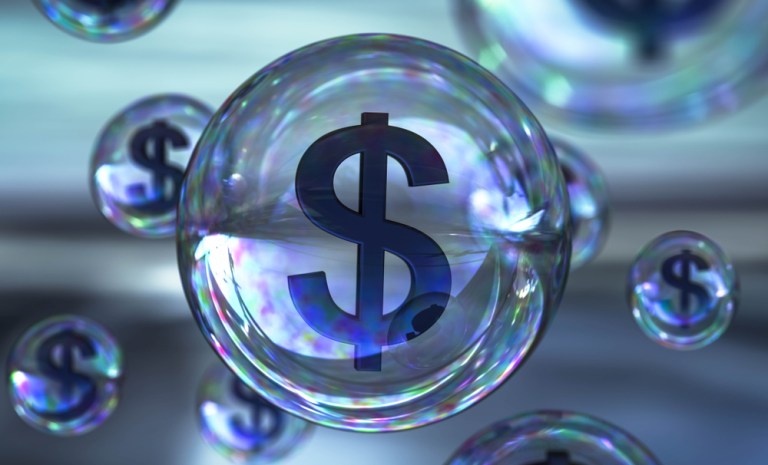Economists Warn Of Impending Corporate Debt Bubble Burst

Data released from S&P Global in June pinpointed U.S. corporate debt at reaching $6.3 trillion, with a record-low cash-to-debt ratio of 12 percent in 2017 for speculative-grade borrowers.
Now, analysts warn that a corporate debt bubble could be growing, as analysts and investors turn their attention toward a booming stock market. In a recent column for The New York Times, analyst William D.Cohan warned that investors are “overpaying for riskier and riskier obligations,” arguing that the cost of corporate bonds and loans are not accurately reflecting the risk of borrowers’ creditworthiness (or lack thereof).
He cited International Monetary Fund analysis, which warned of “excessive optimism” among investors that skyrocketed the U.S.’s bond market to hit about $41 trillion. Cohan predicted rising corporate defaults as interest rates rise, resulting in trillions of dollars-worth of investments to be lost. This bubble bursting could, in turn, lead to a shortage of available credit for worthy borrowers.
“To be sure,” he wrote, “the growing concern about the mis-pricing of risk doesn’t mean we’re on the verge of a recession. But the corporate debt bubble inevitably will play a role in causing it.”
In another article, The Economist noted that corporates are looking to “load up on debt” in an effort to buy back stock or finance M&A activity, forcing their ratings down. The average rating for a corporate bond issuer is BBB, one level above junk, the report said, and companies may buy back fewer of their shares to preserve that rating.
“Even so, a recession will come sooner or later,” the publication said. “The profits of leveraged firms will be damaged, which will in turn hurt confidence. Downgrades and defaults will follow, as they always do.”
Analysts’ discussion about the implications of rising corporate debt in the U.S. coincide with similar concerns in China. Reports last week warned that corporate bond defaults have risen to $5.5 billion this year, more than the whole of 2017.